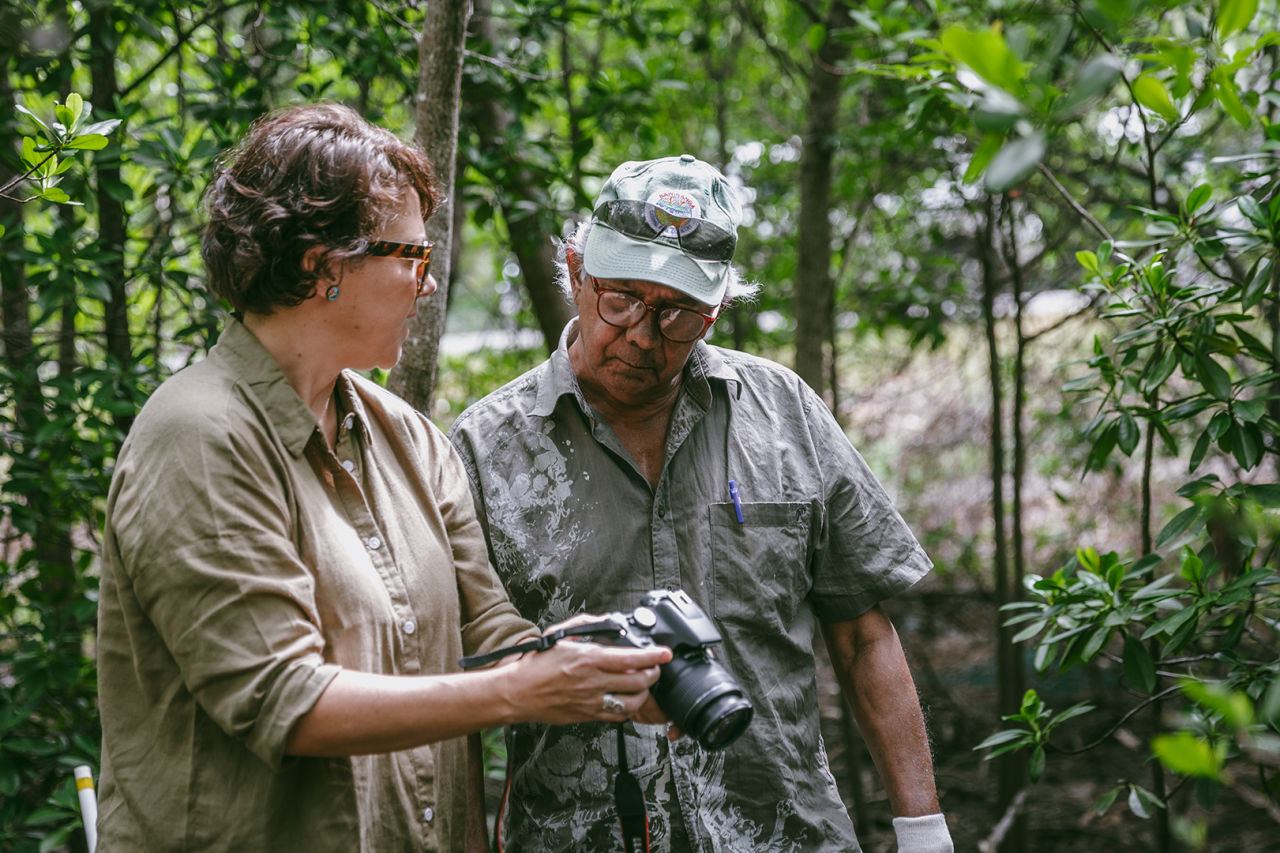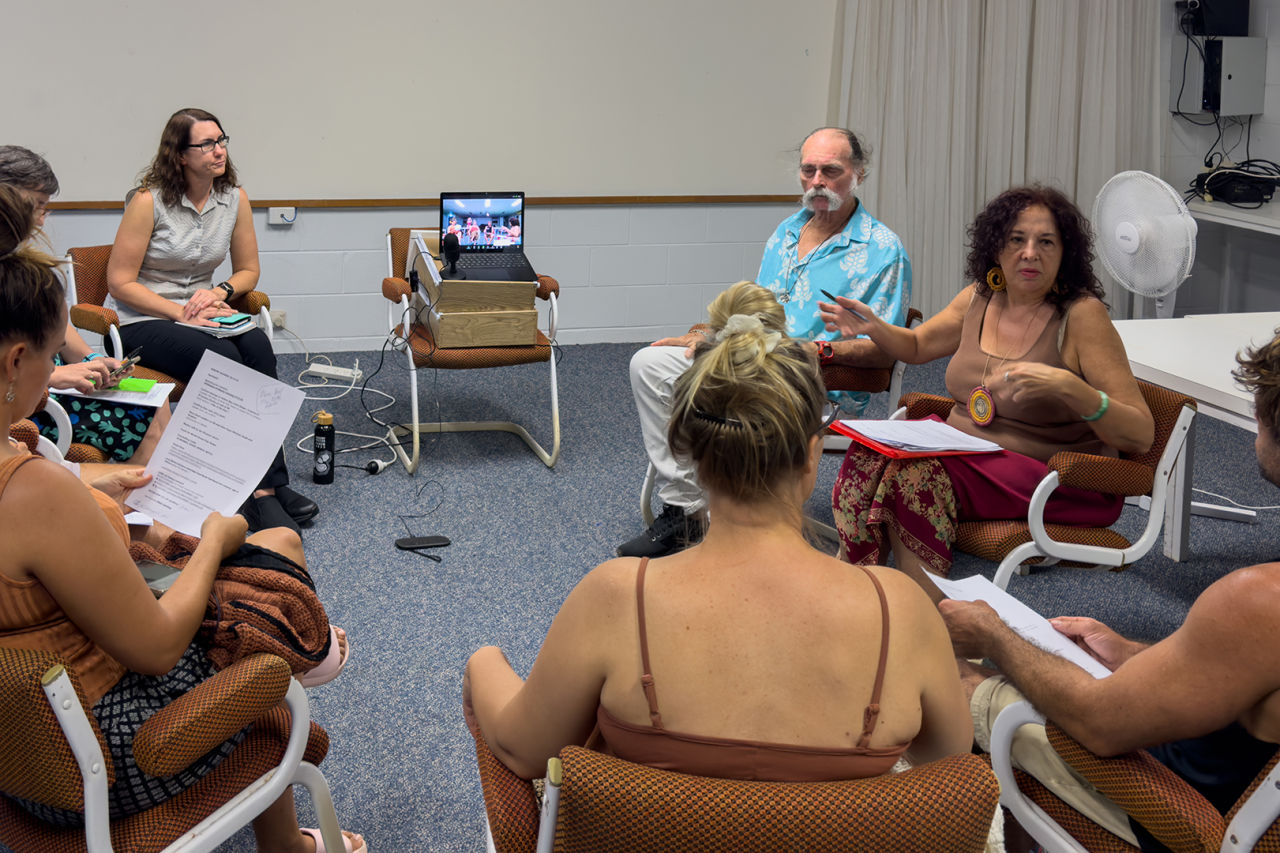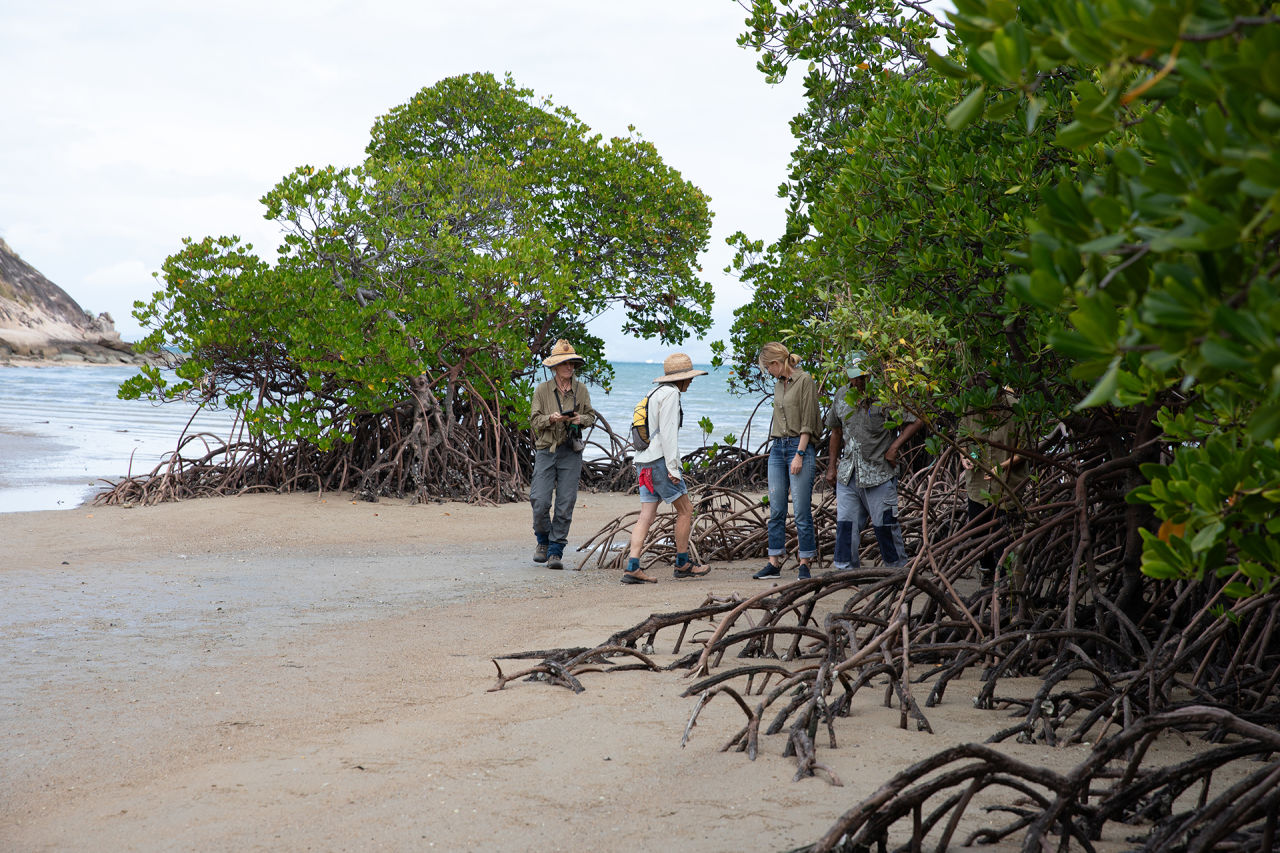Just a short 8km ferry ride from Townsville is Magnetic Island - known as Yunbenun by the Traditional Owners of the island, the Wulgurukaba People - celebrated for its golden beaches, coral reefs, and rich vegetation. One of the most ecologically diverse islands of the Great Barrier Reef, Yunbenun is home to a number of endangered and migratory species. Turtles relax on the fringing reefs. Families of grazing dugongs pass through the seagrass meadows. Fish, birds and crabs shelter in the extensive mangrove habitat on shore.
With a growing population of 2,400 residents, Yunbenun is also home to a passionate community, working to protect their ecological and cultural features.

Yunbenun is home to a number of endangered and migratory species including green sea turtles. Credit: Kobie Rhodes.
#Yunbenun's enduring connection to culture and Country
There is a strong sense of connection among the island's community, who have long recognised the natural beauty and ecological importance of the island and its contribution to the health of the Great Barrier Reef.
The Wulgurukaba People have a continuing connection to Yunbenun's land and water.
Brian Johnson, a Wulgurukaba elder, stated: "This land holds importance to us because we can identify our shields and markings where we believe that we are connected to this land and to the island and to the water.
"It's been really great just to see people working together. We've been working with the Yunbenun Rangers and we've been able to take up lots of opportunities as Traditional Owners - we have an obligation to look after Country and networking is so important."

Brian Johnson, a Wulgurukaba elder, says "we have an obligation to look after Country and networking is so important." Credit: Ben and Di.
#Community action on the front line of climate change
Many residents are aware of the challenges the Reef faces, whether from local threats such as coastal development and invasive species, or global threats posed by climate change. This place is unique in the way community is working together to shape a better future for the Reef.
Townsville is an established hub for marine science and management and this local expertise, partnered with the passion evoked by Yunbenun, creates a unique dynamic where community groups are stepping up to look after their island.
Building on two decades of work, in 2020 Magnetic Island Community Development Association (MICDA) brought together more than 14 groups to develop the Yunbenun-Magnetic Island Community Action Plan (CAP) for community Reef protection actions. The development of the CAP united Traditional Owners, community groups, council, scientists, managers, NGOs, businesses, and the local school to commit to a whole-of-island approach to care for its World Heritage Values. This includes the rich cultural values of the Wulgurukaba Traditional Owners, the fringing reefs, mangroves, saltmarshes and seagrass habitats, as well as endangered species such as sea turtles and dugongs.
MICDA President Libby Evans-Illidge said: "It's just a tiny island in a huge World Heritage area, but we now know that the natural, social and cultural values of Magnetic Island are values that are expressed uniquely at the scale of the whole World Heritage Area."

The Magnetic Island Community Development Association (MICDA) united groups within the community to develop the Community Action Plan. Credit: Ben and Di.
#Working towards a net zero future on Yunbenun
The achievements of the CAP program have helped catalyse new ways for the community to work together and take action on climate change.
MICDA co-ordinator Aniko Papp explained: "The aim of our project is to work towards a Net Zero Yunbenun-Magnetic Island. We're working to make Magnetic Island 100% powered by solar energy or renewable energy by 2030, reducing as much as possible the waste that's going into landfill."
MICDA advisor and Founder of Beyond Coral Foundation Stephen Rodan added: "I know it's going be the best thing for the island to figure out if independent businesses and residents can become essentially independent of the grid. If you can save energy, you can save money."

A MangroveWatch program is recording the island's first baseline information to understand threats to wetland habitats. Credit: Ben and Di.
#Citizen science key to understanding coastal habitats
The community is helping pioneer innovative solutions to protect local biodiversity, including threatened marine turtle species. As Natasha Rodwell of Envite Environment explained: "Climate change is seeing our coastlines change dramatically and we're losing our suitable nesting habitat for our turtles - with this project, we're trying to establish what vegetation supports good nesting habitat to reduce temperature, or maintain the natural temperature of the sand so we get a nice variation of male and female turtles."
Yunbenun unique and diverse range of ecosystems also includes mangrove forests which are vulnerable to urban development.
Building on ideas from CAP discussions, Earthwatch and local group, CANOE Projects Inc, are now growing a MangroveWatch program to record the island's first baseline information and understand threats to the blue carbon wetland habitats.
These projects could not happen without the dedicated work of many volunteers. As Gemma Wickens, former CAP Leader at MICDA shared: "We have some fabulous volunteers here on the island. We are linking existing groups and keeping it really positive and happy."
Together, these projects are demonstrating what's possible when partners work together to support the community to nurture, restore and protect the island's outstanding values for current and future generations.







